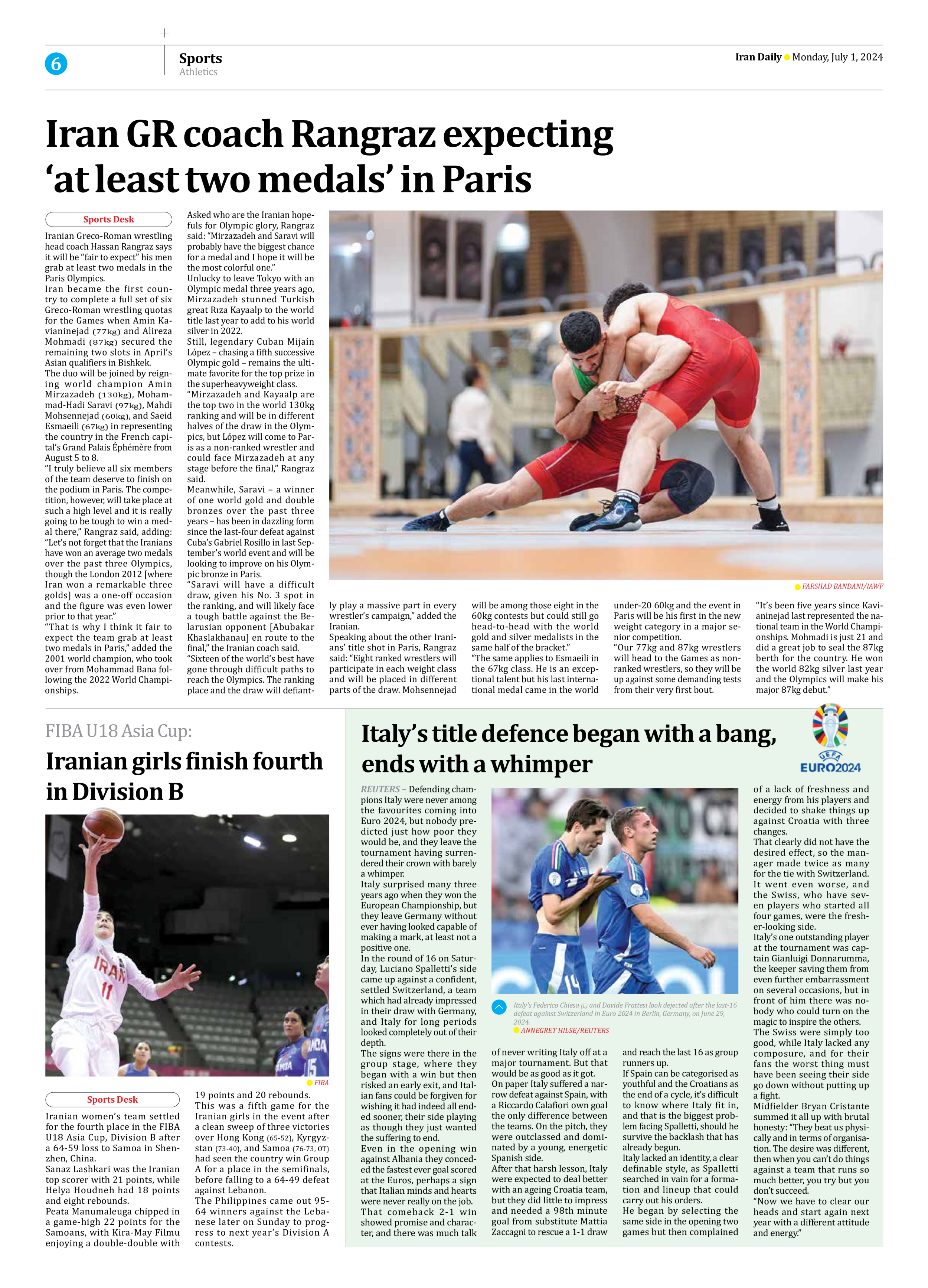
Copy in clipboard...
Italy’s title defence began with a bang, ends with a whimper
Italy surprised many three years ago when they won the European Championship, but they leave Germany without ever having looked capable of making a mark, at least not a positive one.
In the round of 16 on Saturday, Luciano Spalletti’s side came up against a confident, settled Switzerland, a team which had already impressed in their draw with Germany, and Italy for long periods looked completely out of their depth.
The signs were there in the group stage, where they began with a win but then risked an early exit, and Italian fans could be forgiven for wishing it had indeed all ended sooner, their side playing as though they just wanted the suffering to end.
Even in the opening win against Albania they conceded the fastest ever goal scored at the Euros, perhaps a sign that Italian minds and hearts were never really on the job.
That comeback 2-1 win showed promise and character, and there was much talk of never writing Italy off at a major tournament. But that would be as good as it got.
On paper Italy suffered a narrow defeat against Spain, with a Riccardo Calafiori own goal the only difference between the teams. On the pitch, they were outclassed and dominated by a young, energetic Spanish side.
After that harsh lesson, Italy were expected to deal better with an ageing Croatia team, but they did little to impress and needed a 98th minute goal from substitute Mattia Zaccagni to rescue a 1-1 draw and reach the last 16 as group runners up.
If Spain can be categorised as youthful and the Croatians as the end of a cycle, it’s difficult to know where Italy fit in, and that is the biggest problem facing Spalletti, should he survive the backlash that has already begun.
Italy lacked an identity, a clear definable style, as Spalletti searched in vain for a formation and lineup that could carry out his orders.
He began by selecting the same side in the opening two games but then complained of a lack of freshness and energy from his players and decided to shake things up against Croatia with three changes.
That clearly did not have the desired effect, so the manager made twice as many for the tie with Switzerland. It went even worse, and the Swiss, who have seven players who started all four games, were the fresher-looking side.
Italy’s one outstanding player at the tournament was captain Gianluigi Donnarumma, the keeper saving them from even further embarrassment on several occasions, but in front of him there was nobody who could turn on the magic to inspire the others.
The Swiss were simply too good, while Italy lacked any composure, and for their fans the worst thing must have been seeing their side go down without putting up a fight.
Midfielder Bryan Cristante summed it all up with brutal honesty: “They beat us physically and in terms of organisation. The desire was different, then when you can’t do things against a team that runs so much better, you try but you don’t succeed.
“Now we have to clear our heads and start again next year with a different attitude and energy.”







